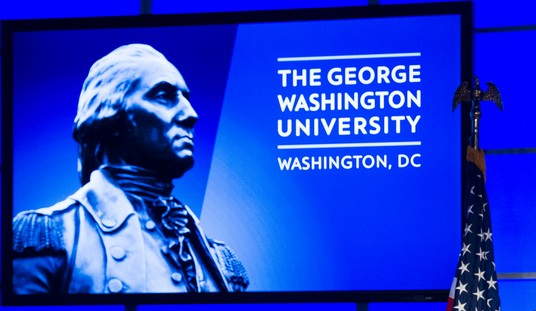Senator John McCain’s campaign has “abruptly canceled” a fundraiser that had been set to take place at the home of a Texas oilman. The host, Clayton Williams, had run for governor against Ann Richards back in 1990 and, during the campaign, unfortunately at one point compared the weather to a rape — “as long as it’s inevitable, you might as well lie back and enjoy it.” He was trying to be funny. It wasn’t. These words were picked up by the media and by Richards’ campaign and Williams lost.In canceling their fundraiser, McCain’s campaign spokesman said, “These were obviously incredibly offensive remarks that the campaign was unaware of at the time this event was scheduled.”
Now the questions begin: Should he give back the money? How will this affect the campaign? What will Obama do? Shouldn’t he have known?
That last question is, perhaps, worth thinking about.
There’s a long and proud American tradition of political figures getting torpedoed by words and deeds from the past. Often it is some sort of nominee who’s inane or insane remarks from their youth get unearthed. Or weird academic writings that had been read by maybe seven Ph.D.s come to light. Or the figure has a vulgar sense of humor (like our man Williams). Or a family member has a checkered past.
Opponents pounce on such things, and that’s understandable. But in the past, the test in people’s living rooms has been: how does the principal deal with the revelations? For some high-profile nominees, such as for positions that require Senate confirmation, we are dumbfounded that the offense had not come up in the background checks, but for less weighty things there’s this sense of sympathy. You can’t know everything about everybody.
But now that’s changed. Really, it’s hard not to know more about most people than they would like to have known.
Take that fellow who ran for Texas governor and tripped up the Senator from Arizona. One Google search yields his Wikipedia entry as the #2 hit. Wikipedia (and this was current as of March 27), highlights the offending remark. OK, some purists say Wikipedia is prone to manipulation, so follow one more link to the source article. There it is, the remark and the ensuing controversy. That “research” took sixty seconds, including reading time.
Yet, the McCain campaign treats the remark as if it was some obscure thing they could not have possibly known. The only way the campaign could have been “unaware of” the remark “at the time the event was scheduled” would be if no one actually looked into who this guy was. Probably a better response from the Straight Talk Express would have been: “We were moving too fast and just didn’t do our homework.”
This isn’t just McCain’s problem. Senator Barack Obama’s campaign has been plagued by similar Google-blindness and tin-ear moves. James Johnson, the consummate insider, reviewing the Running Mates of Change? Please. Tony Rezko, radioactive fundraiser and neighbor selling a strip of vacant land to the senator from Illinois? He was “glowing” at the time of the sale, under investigation by Federal prosecutors. And for intemperate, embarrassing remarks, see the entry under Rev. Wright.
Senator Obama’s response to criticism that he should have known about Johnson’s sweetheart mortgage deals was: “[E]verybody . . . who is tangentially related to our campaign, I think, is going to have a whole host of relationships. I would have to hire the vetter to vet the vetters.” This is a classic line. If there is justice, “vetter to vet the vetters” will enter pop culture and get screened onto American Apparel basic T’s. At least it deserves something on the Colbert Report.
But he does have a point. Johnson’s apparently too-cozy Countrywide mortgages came to light (through an article in the Wall Street Journal) only after he was named Chief Vetter.
While there are many things that a campaign ought to know, there are just as many things about supporters that campaigns can’t know. And the means for many of these things to come to the fore are firmly entrenched in the landscape. Look no further than sites like Pajamas Media. The only certainty, then, is that things will come to light.
Candidates need to both up their game and prepare for the mistakes they will definitely make. It won’t pass muster to say you didn’t know something anyone can find out in less than a minute.
But, as former defense secretary Donald Rumsfeld pointed out (and for which wisdom he was unfairly ridiculed), there are known unknowns. That is to say, candidates can bet on embarrassing revelations about their supporters, even if they do not yet know, and cannot yet know, what they are.
How will the campaigns respond? Circle the wagons? Or — perhaps too much to ask from the Candidate of Believable Change or from Camp Straight Talk — with straightforward candor?
Brad Rourke writes a column on public life called Public Comments, produces a videolog called Taxonomies, is a founder of the Maryland neighborhood blog, Rockville Central, and is in a band called The West End.








Join the conversation as a VIP Member